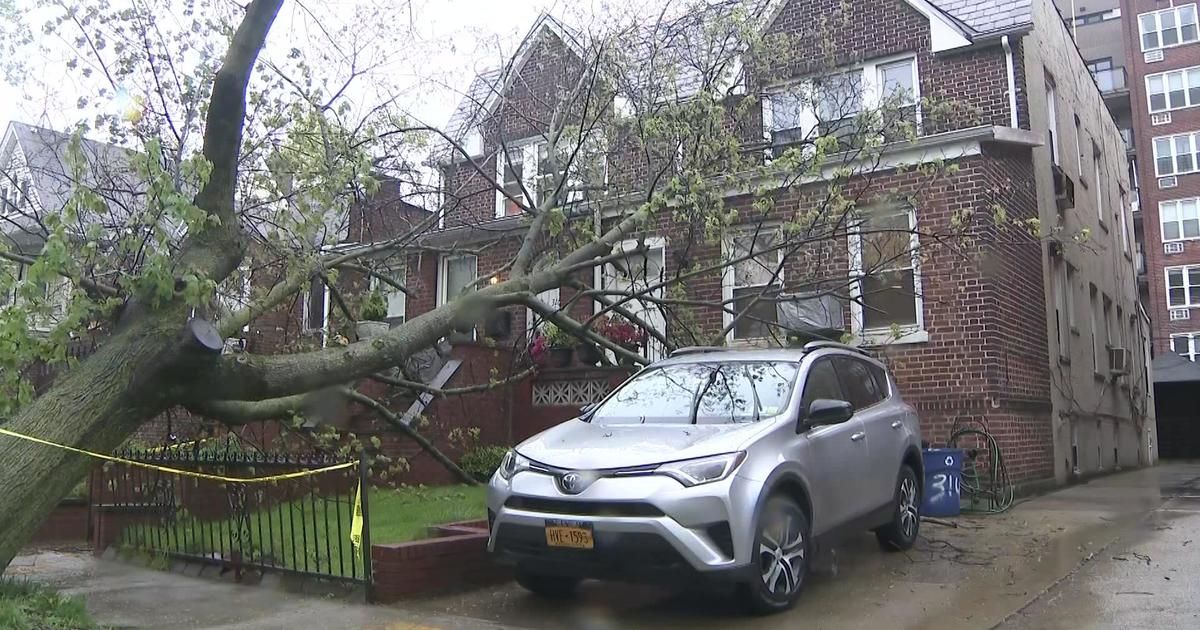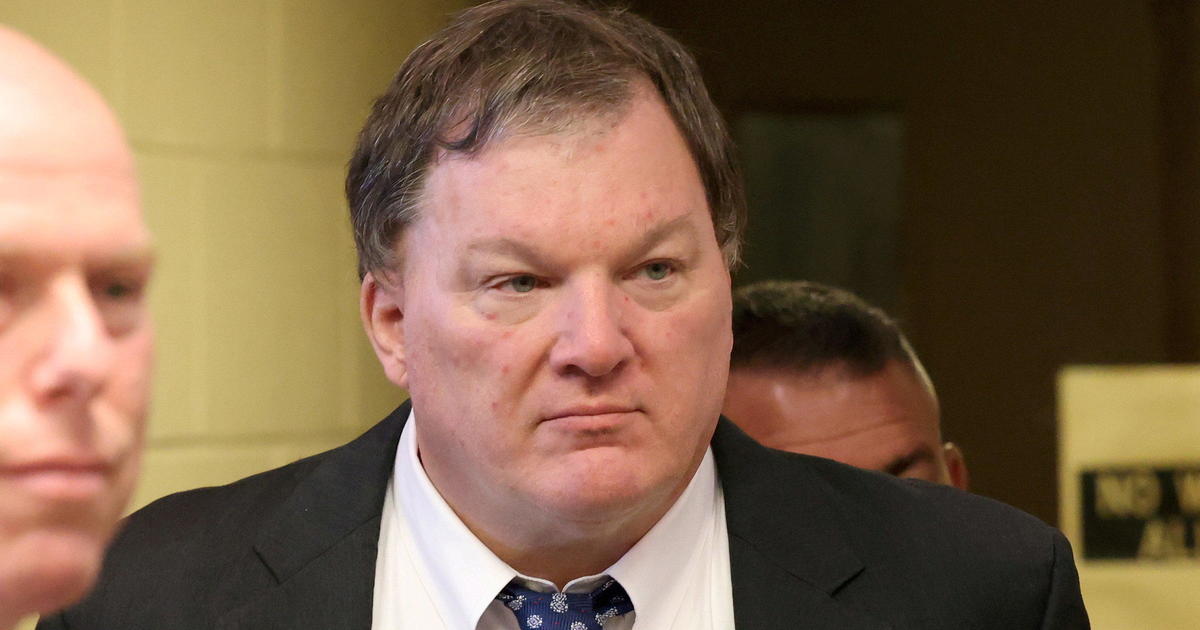N.J. Angel Of Death: 'In A Sense, I Thought I Was Helping'
NEW YORK (CBSNewYork) - Charles Cullen, the man known as the most prolific serial killer in New Jersey history, said he thought he was "helping" suffering patients as he injected dozens of them with deadly poisons while working as a hospital nurse.
Cullen is currently serving 11 life terms at the New Jersey State Prison in Trenton for sneaking into patients' hospital rooms and administering the lethal doses over a period of 16 years. He spoke with Steve Kroft in a "60 Minutes" interview that aired Sunday.
It was the first ever interview with a serial killer through the nearly 45-year history of the CBS News magazine.
Cullen had never before spoken about the crimes and explained why he had killed so many people. Even during sentencing in 2006, he exasperated the judge by keeping silent.
While Cullen pleaded guilty to 29 murders, it is still not clear how many patients he may have killed in his 16 years as a nurse.
An expert told Kroft that investigators believe Cullen may have killed hundreds of patients over the years.
But with a flat affect in his voice, Cullen admitted to an estimated 40 murders as he spoke with Kroft.
"Forty is the estimate. I gave the number between 30 and 40. I think they have identified most of them," Cullen said.
He also conceded that he deserves the label "murderer."
"I think that I had a lot of trouble accepting that word for a long time, but I accept it, and that's what it is," he said.
And he said if the definition of a serial killer is someone who commits multiple murders in a pattern, he indeed considers himself one.
Cullen's first confirmed murder happened at St. Barnabas Medical Center in Livingston, N.J., in 1988. He had begun working at the hospital two years earlier, and said he witnessed "a lot of pain, a lot of suffering" working on the burn unit.
Cullen quit the hospital after investigation began into tampering with IVs. He moved to Warren Hospital in Phillipsburg, N.J., and a 16-year killing spree began.
Later, the drug of choice for his murders was digoxin, a cardiac medication.
"Dig is a very powerful cardiac medication. In small amounts, it slows the heart rate down. In larger amounts, it can cause what's called complete heart block, and then the heart is very irregular, and you know, it can cause death – it does cause death – in large amounts," Cullen said.
Altogether, Cullen's known victims ranged in age from 21 to 91. Some were indeed terminally ill, while others were healthy and about to be discharged when they died.
When asked what his motive was, Cullen said: "I thought that people aren't suffering anymore, so in a sense, I thought I was helping."
But some patients were recovering and in no pain at the time. For example, one patient, Michael Strenko, was suffering from an autoimmune disease and was recovering from "routine" surgery to remove his spleen.
Cullen had little explanation for his choice of victims.
"You know, again, you know, I mean, my goal here isn't to justify. You know what I did there is no justification," Cullen told Kroft. "Um, I just think that the only thing I can say is that I felt overwhelmed at the time."
Charles Graeber spent seven years investigating the case for his book, The Good Nurse: A True Story of Medicine, Madness, and Murder. Graeber told Kroft that while Cullen had attempted suicide multiple times and had been in and out of mental institutions, the hospitals that were hiring him did not investigate his background.
By the time Cullen was hired at St. Luke's University Hospital in Bethlehem, Penn., he had been fired or forced out of five other hospitals and had murdered 11 people by his own estimation, 60 Minutes reported.
But Cullen himself said that hospital offered to give him "neutral" references if he agreed to resign, even though the hospital was suspicious. He said his own license should have been taken away a long time before that.
Cullen's final assignment at Somerset Medical Center in Somerville, N.J., where he would murder 13 more people in 13 months. It was the 2003 death of a the Rev. Florian Gall, a Roman Catholic priest who died unexpectedly while recovering from pneumonia at the hospital, that finally set forth the chain of events that exposed Cullen.
The New Jersey Poison Control Center learned that several patients in the unit had suffered digoxin overdoses or high insulin levels, and notified police. Once police launched an investigation, Somerset Hospital fired him – for lying on his application, "60 Minutes" reported.
Ann Ridgway, a nurse who worked with Cullen, finally got him to confess. He pleaded guilty and was sentenced to 11 life terms at the New Jersey State Prison in Trenton.
Cullen said he knew his acts were wrong, and said he was sorry.
"But like I said," he said, "I don't know if I would've stopped."
You May Also Be Interested In These Stories



